vomistop DOMPERIDONE
Introduction to Vomistop
Vomistop is a medication primarily used to relieve symptoms of nausea and vomiting. It is particularly effective in controlling these uncomfortable symptoms, helping you feel better quickly.
Composition of Vomistop
Vomistop contains the active ingredient Domperidone. This component works by blocking certain receptors in the brain, which helps prevent nausea signals from being transmitted.
Uses of Vomistop
- Relieves nausea and vomiting
- Helps with stomach discomfort
- Can be used to treat symptoms of gastroparesis (a condition that affects stomach motility)
Side Effects of Vomistop
Common Side Effects:
- Dry mouth
- Headache
- Diarrhea
- Rash
- Itching
Serious Side Effects:
- Heart rhythm problems, especially in older adults or those taking high doses
Precautions of Vomistop
Before taking Vomistop, it's important to consider certain precautions. People with heart problems, severe liver issues, or certain types of sugar intolerance should avoid this medication. Additionally, it can interact with other medications, particularly those affecting heart rhythm. It's advisable to limit or avoid alcohol during treatment as it may enhance side effects like drowsiness.
How to Take Vomistop
- Take one 10mg tablet up to three times a day
- Do not exceed 30mg in a 24-hour period
- Take 15-30 minutes before eating
- Not intended for long-term use; do not take for more than a week
Conclusion of Vomistop
Vomistop is an effective medication for relieving nausea and vomiting. By understanding its uses, side effects, and precautions, you can use it safely and effectively. Always consult with a healthcare professional before starting any new medication to ensure it is appropriate for your specific health needs.
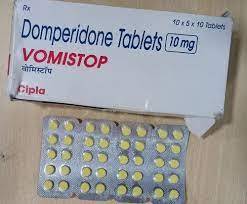

Can I take Vomistop with other prescription drugs?
Vomistop can interact with certain medications, increasing the risk of heart rhythm problems. Avoid combining it with drugs that prolong the QT interval, such as some antibiotics and antifungals. Always inform your doctor about all medications you're taking to prevent interactions. They can help adjust your treatment plan to ensure safety and effectiveness.

Does Vomistop affect appetite?
Vomistop doesn't typically affect your appetite. Most people taking this medication don't notice changes in how hungry they feel. If you notice any unexpected changes in your appetite after starting Vomistop, talk with your doctor. They can help determine if these changes are related to the medication or if there might be another cause.

Does Vomistop affect mood?
Vomistop doesn't typically cause mood changes. Most people take this medication without experiencing anxiety or agitation. If you notice changes in your mood after starting Vomistop, talk with your doctor. These symptoms might be related to something else, like stress or another health condition. Your doctor can help determine the cause and suggest appropriate support.

Does Vomistop affect sleep?
Vomistop doesn't typically cause sleep problems. Most people take this medication without experiencing changes in their sleep patterns. If you notice changes in how well you sleep after starting Vomistop, talk with your doctor. Sleep problems might be related to something else, like another medication or a different health condition. Your doctor can help figure out the cause and suggest ways to improve your rest.

Does Vomistop cause headaches?
Headaches are not a common side effect of Vomistop. Most people take this medication without experiencing headaches. If you do get mild headaches while taking Vomistop, staying well-hydrated and resting may help. You can also take over-the-counter pain relievers after checking with your doctor. For severe or persistent headaches, talk with your healthcare provider to determine if they might be related to Vomistop or another cause.

Does Vomistop cause stomach upset?
Vomistop can cause mild stomach upset, including nausea or abdominal discomfort. These side effects are not common and are usually mild. If you experience mild stomach upset, taking Vomistop with food might help. If you develop severe or persistent stomach issues, talk with your doctor. They can help determine if these symptoms are related to Vomistop or if there might be another cause.

Does Vomistop cause weight gain?
Vomistop does not typically affect body weight. Most people take this medication without noticing changes in their weight. If you experience unexpected weight changes while taking Vomistop, talk with your doctor. They can help determine if these changes are related to the medication or if there might be another cause.

Does Vomistop interfere with sexual function?
Vomistop does not typically interfere with sexual function. Most people take this medication without experiencing changes in sexual health, such as erectile dysfunction or loss of libido. If you notice any changes in your sexual function while taking Vomistop, it's important to talk with your doctor. They can help determine if these changes are related to the medication or if there might be another cause. Your doctor can also suggest ways to manage any mild or moderate sexual health side effects you might experience.

Does Vomistop limit driving?
Vomistop might cause dizziness or drowsiness in some people, which can affect your ability to drive safely. If you experience these side effects, avoid driving until you know how the medication affects you. Pay attention to how your body responds when you first start taking Vomistop. Talk with your doctor if you have concerns about driving while on this medication.

Does Vomistop make it hard to think or concentrate?
Vomistop doesn't typically cause thinking problems or concentration difficulties. Most people take this medication without experiencing changes in mental focus or memory. If you notice problems with your thinking after starting Vomistop, talk with your doctor. These symptoms might be related to something else, such as another health condition. Your doctor can help determine the cause and suggest solutions.

Does Vomistop make people tired or drowsy?
Vomistop doesn't commonly cause tiredness or drowsiness. Most people take this medication without feeling unusually tired. If you notice you're feeling very sleepy or fatigued while taking Vomistop, talk with your doctor. Your tiredness might be caused by something else, like another medication or an underlying health condition. Your doctor can help determine the cause and recommend adjustments.

For how long do I take Vomistop?
Vomistop is usually taken for short-term relief of symptoms like nausea and vomiting. The duration of use depends on your condition and how well you respond to the medication. Your doctor will provide specific instructions on how long to take Vomistop. Always follow your doctor's advice and talk with them before changing or stopping your treatment.

How does Vomistop work?
Vomistop works by blocking dopamine receptors in the gut, which helps speed up the movement of food through the stomach. This action reduces nausea and vomiting. Think of it like clearing a traffic jam in your stomach, allowing food to pass through more easily. Vomistop is effective for relieving symptoms of nausea and vomiting, making it helpful for conditions like gastroparesis.

How do I know if Vomistop is working?
You'll know Vomistop is working if your symptoms of nausea and vomiting improve. You might notice less discomfort and a reduction in these symptoms. If you're taking Vomistop for another condition, your doctor will monitor your progress through symptom relief and possibly other tests. Regular check-ups with your doctor are important to ensure the medication is working properly for your condition.

How do I take Vomistop?
Take Vomistop as prescribed by your doctor. It's usually taken before meals, up to three times a day. Swallow the tablets whole with water; do not crush or chew them. If you miss a dose, take it as soon as you remember unless it's almost time for your next dose. In that case, skip the missed dose and continue with your regular schedule. Do not take two doses at once. Always follow your doctor's specific instructions regarding food and beverage restrictions while on this medication.

How long does it take for Vomistop to start working?
Vomistop usually starts working within 30 to 60 minutes after taking it. You may notice relief from nausea and vomiting symptoms shortly after. The full therapeutic effect can vary depending on your condition and response to the medication. If you have concerns about how quickly Vomistop is working for you, discuss them with your doctor. They can help assess your treatment and make any necessary adjustments.

How should I store Vomistop?
Store Vomistop at room temperature, away from moisture and light. Keep it in its original packaging and out of reach of children. Do not store it in the bathroom, where humidity can affect the medication. Check the expiration date regularly and dispose of any unused or expired Vomistop properly. Follow your pharmacist's instructions for safe storage.

Is Vomistop effective?
Vomistop is effective for relieving symptoms of nausea and vomiting. It works by blocking dopamine receptors in the gut, which helps speed up the movement of food through the stomach. Clinical studies support its effectiveness in improving these symptoms. If you have concerns about how well Vomistop is working for you, discuss them with your doctor. They can help assess your treatment and make any necessary adjustments.

Is Vomistop safe for the elderly?
Elderly individuals may be more vulnerable to the side effects of Vomistop, such as heart rhythm problems. It's important for older adults to use this medication under close medical supervision. Your doctor will consider your overall health and any existing conditions before prescribing Vomistop. Regular monitoring can help manage any potential risks.

Is it safe to drink alcohol while taking Vomistop?
It's best to avoid alcohol while taking Vomistop. Alcohol can increase the risk of side effects like dizziness and may worsen nausea. If you choose to drink, do so in moderation and be aware of how your body responds. Talk with your doctor about alcohol use while taking Vomistop to get personalized advice based on your health situation.

Is it safe to drink coffee or tea while taking Vomistop?
You can drink coffee and tea while taking Vomistop. There are no known interactions between caffeine and Vomistop. However, caffeine can sometimes cause stomach upset, which might affect how you feel. If you notice any discomfort, try reducing your caffeine intake. Always ensure you stay hydrated and talk with your doctor if you have concerns about caffeine consumption while on Vomistop.

Is it safe to exercise while taking Vomistop?
Yes, it's generally safe to exercise while taking Vomistop. However, if you experience side effects like dizziness or fatigue, you might need to adjust your activity level. Listen to your body and avoid strenuous activities if you feel unwell. Stay hydrated and take breaks as needed. If you have concerns about exercising while on Vomistop, discuss them with your doctor.

What are Vomistop possible harms and risks?
A side effect is an unwanted symptom caused by medical treatment. Common side effects of Vomistop include dry mouth, headache, dizziness, and stomach cramps. These occur in a small percentage of users. It's important to note that new symptoms can appear when starting any medication, which may be unrelated or temporary. Always consult a healthcare provider before stopping any medication.

What disease or symptom is Vomistop used for?
Vomistop is primarily used to relieve symptoms of nausea and vomiting. It's also used to treat gastroparesis, which is a condition where the stomach takes too long to empty its contents. By blocking dopamine receptors in the gut, Vomistop helps speed up stomach emptying and reduces nausea. It can be used alone or as a complementary addition to other therapies for these conditions.

What is Vomistop?
Vomistop is a medication used to relieve nausea and vomiting. It belongs to a class of drugs called dopamine antagonists, which work by blocking dopamine receptors in the gut. This action helps speed up the movement of food through the stomach. Vomistop is also used to treat symptoms of gastroparesis, which is a condition where the stomach takes too long to empty its contents. It may be used alone or with other therapies.

What is the usual dose of Vomistop?
The usual starting dose of Vomistop for adults is 10 mg taken up to three times a day before meals. Your doctor may adjust the dose based on your response and any side effects. The maximum recommended dose is 30 mg per day. Vomistop is not typically recommended for children or the elderly without specific medical advice. Always follow your doctor's dosing instructions for your personal health needs.

Who should avoid taking Vomistop?
Vomistop should not be used if you have a known allergy to it or its ingredients. It's also contraindicated in people with certain heart conditions, such as prolonged QT interval, which is a heart rhythm disorder. Caution is needed if you have liver or kidney problems. Always inform your doctor about your medical history before starting Vomistop to ensure it's safe for you.
Available in 3 variations

Vomistop 1mg/ml Suspension
bottle of 30 ml Suspension

strip of 10 tablet

strip of 10 tablets





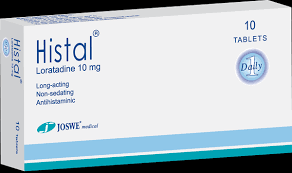
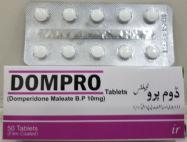
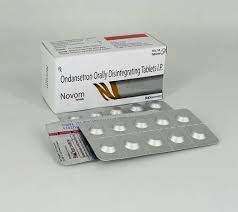


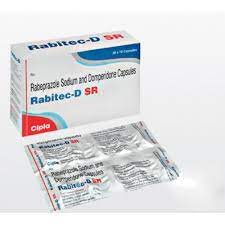

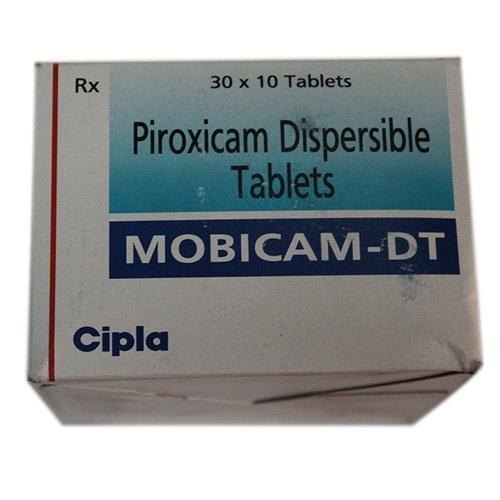





.svg)
